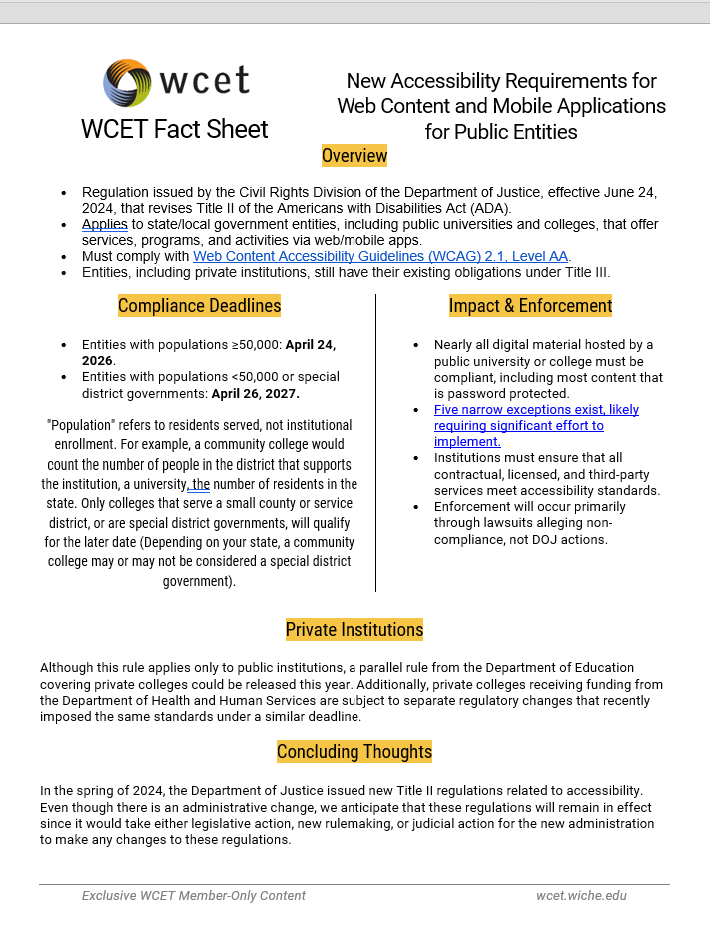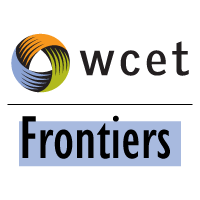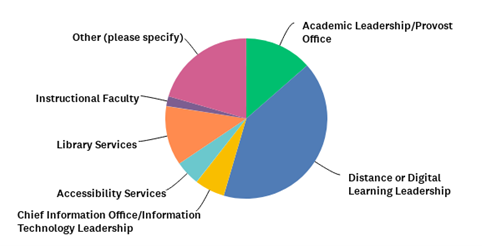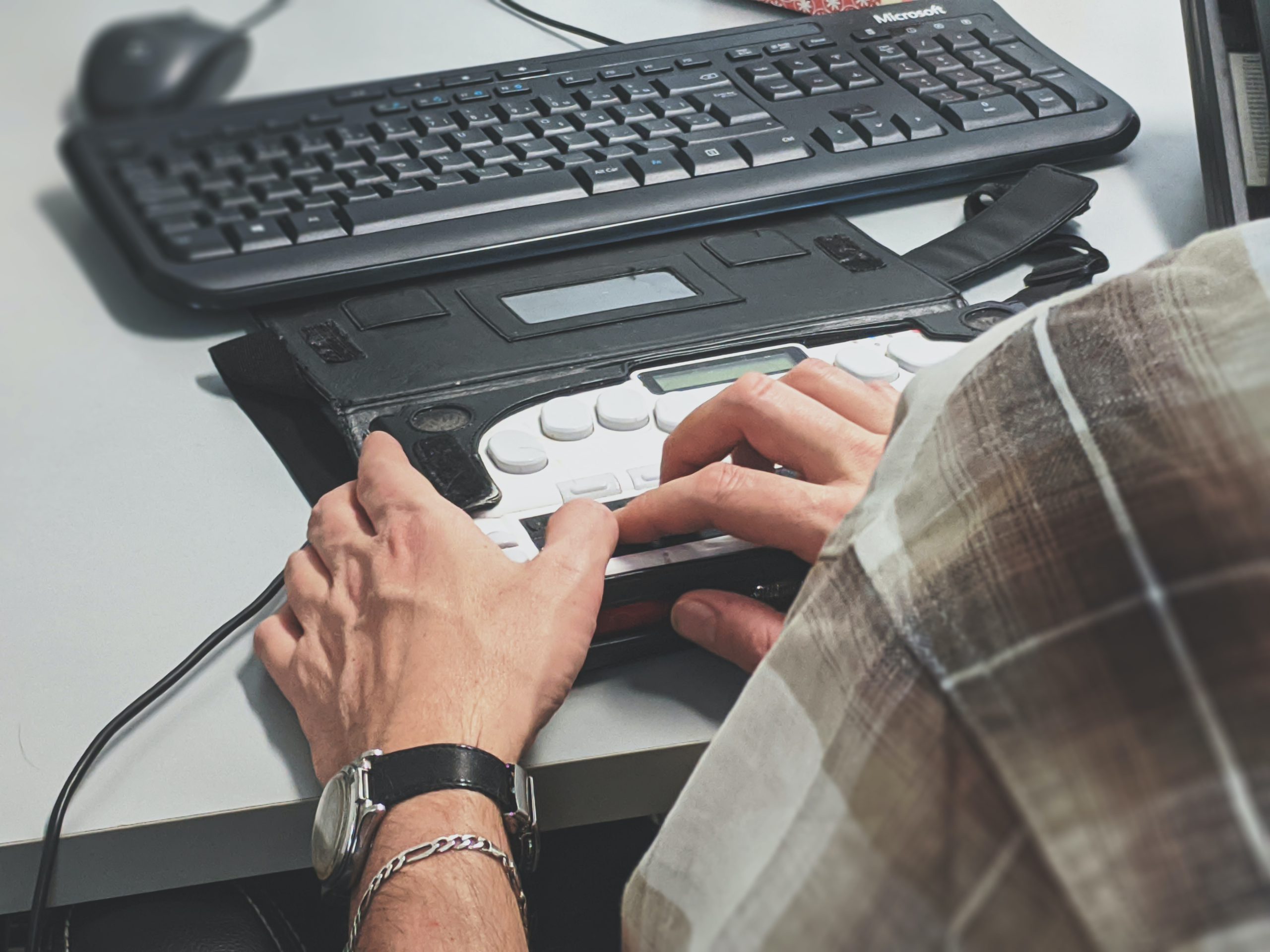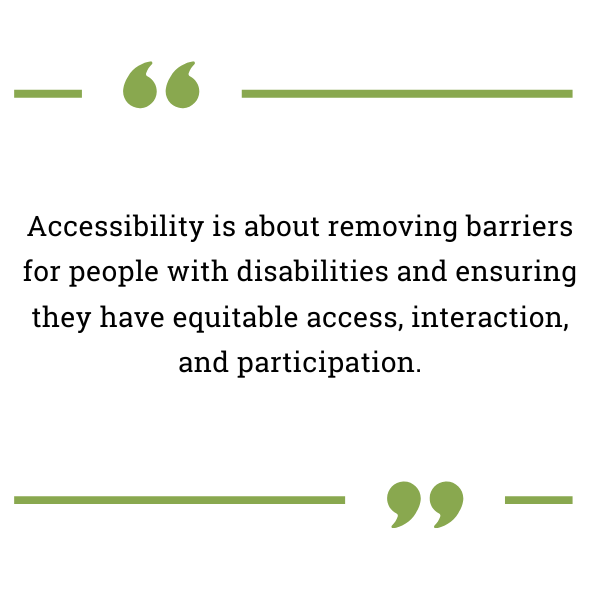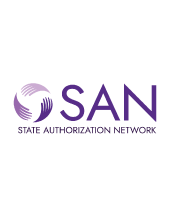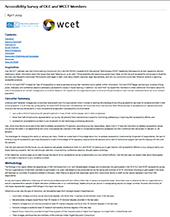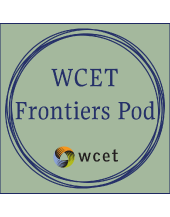Accessibility
Accessibility is both a legal issue, and a human one. On one hand, there are laws in place that require educational providers to create materials such as websites, informational documents, and technology tools that are accessible to all students, or else risk being fined or sued. Accessibility, however, is also an important human issue that entails granting all students the same access needed to succeed in higher education.
Accessibility is essential for developers and organizations that want to create high quality websites and web tools, and not exclude people from using their products and services (W3C, 2021).
To ensure quality digital learning is accessible for everyone, extra steps must be taken to ensure that the following have been designed in a manner that allows all students, instructors, and staff the ability to use them, regardless of ability level:
- course materials,
- learning management systems,
- software,
- websites,
- social media, and
- other digital and interactive tools.
WCET Resources
WCET Events
Access For All: New Accessibility Rules for Public Entities
Overview of New Accessibility Requirements for Web and Mobile Applications for Public Entities, Including Colleges and Universities.
Accessibility in EdTech: How Do Your Products Rate?
Ensuring accessibility in digital learning products is essential to providing all learners with equal educational opportunities. We'll introduce you to a rubric designed to support institutions and edtech suppliers in their efforts to address accessibility.
Lessons Learned on the Journey Through a Website Accessibility Audit
This webcast is hosted in partnership with NWHeat. WCET, a leader in the practice, policy, and advocacy of digital learning in higher education, recently partnered with WebAIM (Web Accessibility In Mind), to conduct a comprehensive website review for accessibility...
Accessibility in the New Normal of Online/Remote Course Delivery
During the spring of 2020, education experienced a swift conversion of face-to-face courses to online and remote formats to complete the Spring 2020 terms. Consequently, some support services to students were missed or incomplete to deliver course content. As...
Accessibility Considerations in Open Education
This webcast is hosted in partnership with NWHeat. The use of Open Educational Resources (OER) has significantly improved inclusivity and access in postsecondary education. Initially, textbook cost barriers were lowered, and many faculty have discovered that the philosophy of...
